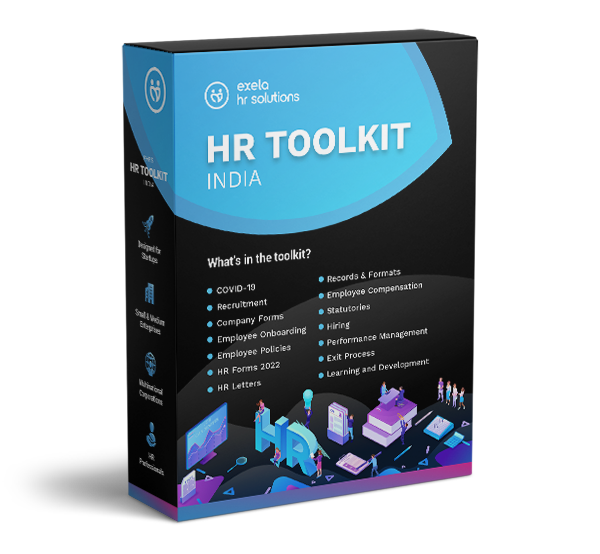
Effective payroll management is the lifeblood of any organization. It's the process that ensures employees are compensated accurately and on time while also adhering to various legal and tax regulations. Inaccuracies, delays, and inefficiencies in payroll management can lead to serious consequences, including unhappy employees, legal troubles, and damage to your organization's reputation. That's why, for organizations looking to streamline their payroll processes, the pursuit of accuracy and efficiency is a top priority.
In today's fast-paced business environment, where every second and every dollar counts, mastering the art of precise and efficient payroll management is more crucial than ever. Errors can be costly in more ways than one, and they are often avoidable with the right strategies in place. To this end, our blog offers a comprehensive guide designed to equip organizations with the knowledge and tools they need to elevate their payroll management to new heights.
Throughout this guide, we'll delve into various aspects of payroll management, providing practical tips and strategies to enhance accuracy and efficiency. From laying the foundation of clear policies to utilizing advanced payroll software, we've got you covered. Whether you're an HR professional, a business owner, or a finance manager, these insights are tailored to help you navigate the complexities of payroll with confidence and precision. Dive in below to learn more.
-
Accurate Time and Attendance Tracking:
One of the core elements of precise payroll management is ensuring that you have an accurate record of the time and attendance of your employees. Precise time and attendance tracking not only affects the correct calculation of wages but also has implications for overtime pay, leave management, and overall workforce productivity. Here's a detailed exploration of this critical aspect of payroll:
-
Implement Robust Time-Tracking Systems:
The foundation of accurate time and attendance tracking lies in having robust systems in place. This can include traditional methods like punch cards and timesheets or modern digital solutions such as time-tracking software or biometric time clocks.
-
Addressing Attendance Challenges:
Inaccurate attendance records can stem from issues such as unauthorized leaves, late arrivals, early departures, or even buddy punching (when one employee clocks in or out for another). Addressing these challenges is vital for accuracy.
-
Role of Automation in Reducing Errors:
Automation can significantly enhance the accuracy of time and attendance tracking. Automated systems can capture employee work hours and breaks in real time, reducing the chances of manual errors.
-
Overtime and Exception Management:
Effective management of overtime hours and exceptions like early departures or unauthorized breaks is crucial. Failure to track these properly can lead to overpayments or underpayments.
-
Regular Auditing and Reconciliation:
Periodic auditing of time and attendance records is essential to identify discrepancies and rectify them in a timely manner. This process includes cross-referencing records with actual work hours and resolving discrepancies.
-
Training and Employee Awareness:
Educate your employees about the importance of accurate time tracking. Provide training on how to use the time-tracking system correctly and inform them about policies for managing attendance and leaves.
-
-
Compliance with Tax Laws and Regulations:
Compliance with tax laws and regulations is a critical aspect of payroll management, especially in the eyes of both your employees and the government. Payroll errors or non-compliance can lead to severe financial penalties, legal consequences, and harm to your organization's reputation. Ensuring that your payroll processes align with tax laws and regulations is a foundational element of accurate and efficient payroll management. Here's a comprehensive look at the key considerations:
-
Staying Up-to-Date with Evolving Tax Codes:
Tax laws and regulations change over time due to various factors, including government policies and economic conditions. To maintain compliance, it's essential to stay current with these changes.
-
Handling Tax Withholdings and Deductions Accurately:
Accurate calculation and timely remittance of tax withholdings, including federal, state, and local income taxes, Social Security, and Medicare taxes, is crucial.
-
Compliance Audits:
Conduct periodic internal audits to ensure your organization's payroll practices adhere to tax laws and regulations. These audits help identify errors and areas for improvement.
-
Record Keeping:
Maintain thorough and accurate records of tax-related transactions. This includes keeping records of tax filings, reports, and any correspondence with tax authorities.
-
Timely Reporting and Filings:
Adhere to tax filing deadlines to avoid penalties and interest charges. Submit all necessary tax reports, such as W-2s and 1099s, accurately and on time.
-
Compliance with State and Local Regulations:
In addition to federal tax laws, state and local tax regulations may also apply to your organization. Ensure that you're familiar with and comply with these laws, which can vary significantly from one location to another.
-
Tax Reporting Software:
Consider using specialized tax reporting software to automate the generation and submission of tax forms. This can reduce the risk of errors and simplify the process of meeting tax obligations.
-
Professional Guidance:
Engage with tax experts, accountants, or payroll consultants who specialize in payroll tax compliance. Their expertise can be invaluable in ensuring that your organization adheres to tax laws and regulations.
-
Also read our latest blog: Navigating Payroll Challenges in SMEs: A Comprehensive Guide
-
Automation and Payroll Software:
In the digital age, automation and payroll software have become indispensable tools for organizations seeking to streamline their payroll processes, enhance accuracy, and improve overall efficiency. These technologies offer many benefits, transforming payroll management from a time-consuming, error-prone task into a well-orchestrated and controlled process. Here's an in-depth exploration of how automation and payroll software can revolutionize your payroll management:
-
Selecting the Right Payroll Software:
Choosing the right payroll software is crucial. Consider your organization's specific needs, such as its size, complexity, and budget.
-
Integration with Timekeeping and HR Systems:
Integration between your payroll software, timekeeping systems, and HR platforms can lead to a seamless data exchange. This eradicates the need for manual data entry and lowers the chances of errors.
-
Cloud-Based Payroll Software:
Cloud-based payroll solutions offer the advantage of accessibility from anywhere, at any time. This flexibility is particularly useful for organizations with remote or distributed workforces.
-
Customization and Scalability:
Payroll software should be customizable to suit your organization's unique needs. This includes accommodating various pay structures, benefits, and tax obligations.
-
Employee Self-Service Portals:
Some payroll software solutions include employee self-service portals. These portals empower employees to access their pay stubs, tax forms, and personal payroll information online.
-
Support and Training:
Adequate training and support are essential for a smooth transition to payroll software. Ensure that your team is well-versed in using the software effectively.
-
Data Security:
Payroll software should have robust security features to protect sensitive payroll data. This includes encryption, secure access controls, and backup procedures.
-
-
Employee Self-Service Portals:
Employee self-service portals have emerged as a valuable component of modern payroll management systems. These portals empower employees to take greater control over their payroll-related information and interactions, creating a more transparent and efficient payroll process. Here's a comprehensive look at the benefits and considerations of employee self-service portals:
-
Empowering Employees:
Employee self-service portals put the power in the hands of your workforce. They allow employees to access a range of payroll-related information and perform specific tasks independently.
-
Reducing Administrative Tasks:
Employee self-service portals can significantly reduce the administrative burden on HR and payroll teams. Employees can access the information they need without having to contact HR for routine requests.
-
Enhancing Transparency:
Transparency in payroll processes is critical for building trust within the organization. Employee self-service portals offer employees visibility into their payroll data, which can help them understand how their compensation is calculated.
-
24/7 Accessibility:
One of the key advantages of self-service portals is that employees can access their payroll information at any time, from anywhere with an internet connection. This accessibility is particularly beneficial for remote or geographically dispersed workforces.
-
Data Accuracy:
Self-service portals reduce the risk of data entry errors. Employees are responsible for ensuring that their personal information is up to date and they can correct mistakes promptly.
-
Efficiency in Request Processes:
Self-service portals can expedite the request and approval processes for various tasks, such as time-off requests. Employees can submit requests through the portal, and managers can approve or deny them electronically.
-
Security and Privacy:
Security is a paramount consideration in self-service portals. Sensitive payroll data must be protected from unauthorized access.
-
Support and Training:
Effective onboarding and training are vital to ensure that employees know how to use the self-service portal effectively.
-
-
Regular Reconciliation and Audits:
The practice of regular reconciliation and audits is a crucial element of maintaining accurate and efficient payroll management. Reconciliation involves comparing payroll records to ensure they align with your financial and operational data. Concurrently, audits scrutinize the accuracy and compliance of your payroll processes. These systematic checks are essential for preventing errors, identifying discrepancies, and improving overall payroll efficiency. Let's delve deeper into the significance of reconciliation and audits:
-
Identifying Discrepancies and Errors:
Regular reconciliation of payroll records helps detect inconsistencies and errors early in the process. This includes discrepancies in wage calculations, tax withholdings, benefits administration, and more.
-
Preventing Costly Mistakes:
By catching errors and discrepancies before they become major issues, reconciliation, and audits can prevent costly mistakes, such as overpayments, underpayments, and compliance-related penalties.
-
Maintaining Transparency:
Regular audits and reconciliations contribute to transparency in payroll management. When employees see that your organization takes compliance and accuracy seriously, it fosters trust and job satisfaction.
-
Compliance Assurance:
Payroll compliance audits ensure that your organization adheres to tax laws, labor regulations, and internal policies. Compliance is a vital aspect of avoiding legal troubles and fines.
-
Data Validation:
Reconciliation checks validate the accuracy of payroll data. This is particularly important when data flows between various systems, such as time and attendance, HR, and payroll software.
-
Regular Reviews:
Reconciliation and audits should be conducted at regular intervals, such as monthly, quarterly, or annually, depending on the size and complexity of your organization.
-
External Audits:
In addition to internal audits, consider engaging external auditors or payroll experts to provide an objective assessment of your payroll processes.
-
Corrective Action:
When reconciliation or audits reveal errors, discrepancies, or compliance issues, take prompt corrective action. This might involve adjustments, updates to policies, or additional training.
-
Documentation and Reporting:
Maintain thorough documentation of reconciliation and audit processes, including the findings and actions taken. Reporting ensures transparency and provides a record of compliance efforts.
-
-
Outsourcing Payroll:
Payroll outsourcing is a strategic decision that can significantly streamline organizational payroll management. This approach involves entrusting your payroll processes to a third-party provider with payroll administration and compliance expertise. Payroll outsourcing can offer numerous advantages, including cost savings, accuracy, and compliance. Here's an in-depth exploration of the key benefits and considerations of outsourcing your payroll:
-
Specialized Expertise:
Payroll service providers specialize in payroll administration. They have dedicated teams of professionals who are well-versed in the intricacies of payroll calculations, tax regulations, and compliance.
-
Cost Savings:
Outsourcing payroll can lead to cost savings in various ways. You can reduce the need for in-house payroll staff, associated training, and the purchase of payroll software.
-
Time Efficiency:
Handling payroll in-house is time-consuming. It involves various tasks, including data entry, calculations, compliance checks, and reporting.
-
Reduced Compliance Risks:
Payroll service providers are well-versed in labor regulation, tax laws, labor regulations, and compliance requirements. They handle complex payroll tax calculations and reporting.
-
Accuracy and Reliability:
Payroll service providers are equipped with advanced payroll software and tools that minimize the risk of errors. They are less likely to make mistakes in wage calculations, tax withholdings, and benefit deductions.
-
Security and Data Protection:
Outsourcing providers prioritize data security and protection. They employ robust security measures, such as access controls, encryption, and secure data storage.
-
Scalability:
Payroll service providers are often equipped to handle payroll management for organizations of various sizes. They can easily scale their services to accommodate your specific needs, whether you have a handful of employees or a large workforce.
-
Simplicity and Reporting:
Outsourcing providers typically offer streamlined and user-friendly reporting. You can access a wide range of payroll reports, simplifying financial planning and analysis.
-
Professional Support:
Payroll service providers offer professional support to address any queries or concerns. This support extends to both your organization and your employees.
-
Strategic Focus:
Outsourcing payroll allows your organization to shift its focus from routine administrative tasks to strategic activities. This includes talent management, employee development, and business expansion.
-
Conclusion
Accurate and efficient payroll management is crucial for today's businesses. Establish a strong foundation with clear policies, track time and attendance meticulously, protect data, and ensure compliance.
If you're seeking top-tier payroll outsourcing, you can always trust Exela’s HR Solutions, specialists in tailoring services to your needs.
Our experts ensure accuracy and compliance, setting your organization up for success in the ever-changing payroll landscape.
Get Exela’s HR Solutions for all your payroll needs! Speak with an expert today.
DISCLAIMER: The information on this site is for general information purposes only and is not intended to serve as legal advice. Laws governing the subject matter may change quickly, and Exela cannot guarantee that all the information on this site is current or correct. Should you have specific legal questions about any of the information on this site, you should consult with a licensed attorney in your area.





